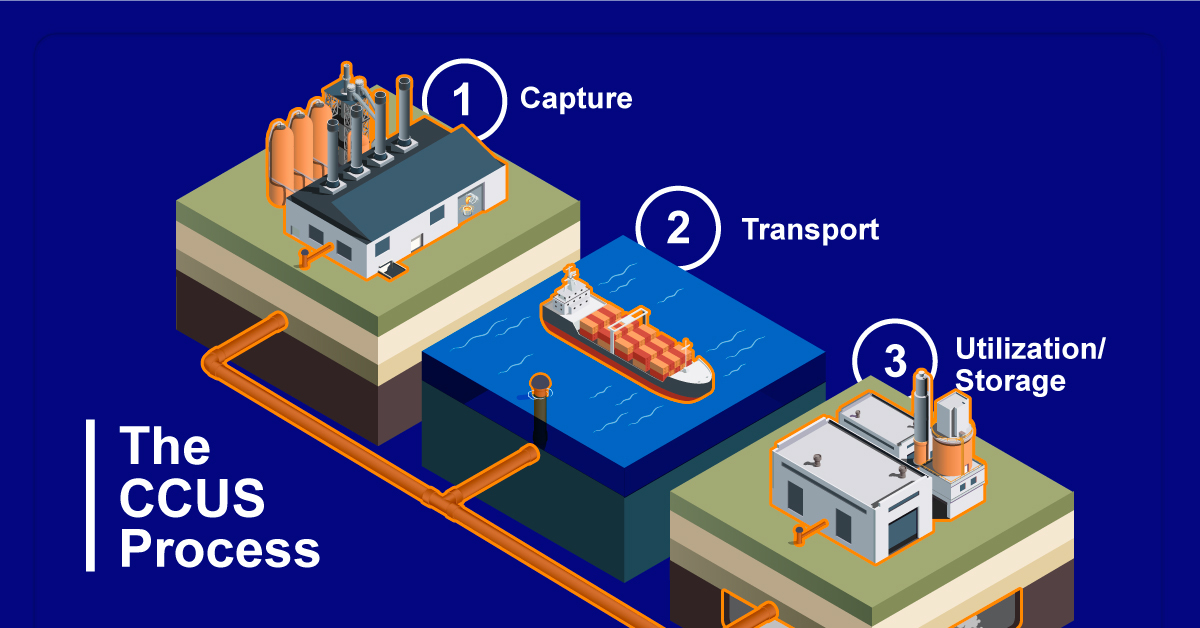Understanding Global Demand for Steelmaking Coal
The following content is sponsored by Teck

Understanding Global Demand for Steelmaking Coal
Global population growth, increased urbanization, and a growing middle class will continue to drive long-term demand for steel and the steelmaking coal required to produce it.
The above infographic from Teck outlines the mineral’s key role in the low-carbon future.
A Vital Ingredient
Steel is the most commonly used metal and fulfills a variety of structural and construction needs, along with being an essential material for the production of vehicles, mechanical equipment, and domestic appliances.
Clean and renewable technologies also require steel to build wind turbines, solar panels, tidal power systems and bioenergy infrastructure.
| Application | Quantity of steel (kg) | Quantity of steelmaking coal (kg) |
|---|---|---|
| Refrigerator | 69 | 48 |
| Microwave | 13 | 9 |
| Gas Stove | 68 | 48 |
| Vehicle | 900 | 630 |
| 1 km of Light Rail Track | 112,000 | 78,400 |
| 40-Foot Shipping Container | 4,000 | 2,800 |
| Boeing 787-10 Aircraft | 13,500 | 9,450 |
| High-Voltage Transmission Tower | 27,000 | 18,900 |
| Wind Turbine | 260,000 | 170,000 |
While some kinds of steel can be made using recycled metal, roughly 72% of global steel production relies on steelmaking coal and certain higher grades of steel can only be made using the ingredient.
How is Steel Made?
Also known as metallurgical coal or coking coal, steelmaking coal is mined to produce the carbon used in steelmaking. This is fundamentally different from thermal coal, which is used to make steam that generates electricity.
To make steel, the coal is first heated at around 1100°C to remove water and other chemicals, without the presence of oxygen. The result is a lump of near-pure carbon which is called coke.
Then, individual layers of coke, iron ore, and limestone are added to a blast furnace to make hot metal that is finally refined into steel.
Reducing Emissions
The steel sector is taking action to reduce its carbon footprint. One solution that has been used in the last couple of years is Carbon Capture, Utilization and Storage (CCUS).
CCUS consists of capturing carbon dioxide (CO₂) during the steelmaking process, then transporting the CO₂ via ship or pipeline, and lastly reutilizing it in other industrial processes, such as producing fuels or as input into chemical production. The CO₂ can also be permanently stored deep underground in geological formations.
Supported by cleaner production, the global steel market is forecast to grow by 557 million tonnes during 2021-2025, progressing at a compound annual growth rate (CAGR) of 6.32%.
As demand for steel grows, so will steelmaking coal’s role in sustainable production.
Teck is one of Canada’s leading mining companies committed to responsibly producing steelmaking coal needed for a low-carbon future.
-

 Sponsored3 years ago
Sponsored3 years agoMore Than Precious: Silver’s Role in the New Energy Era (Part 3 of 3)
Long known as a precious metal, silver in solar and EV technologies will redefine its role and importance to a greener economy.
-

 Sponsored7 years ago
Sponsored7 years agoThe History and Evolution of the Video Games Market
Everything from Pong to the rise of mobile gaming and AR/VR. Learn about the $100 billion video games market in this giant infographic.
-

 Sponsored8 years ago
Sponsored8 years agoThe Extraordinary Raw Materials in an iPhone 6s
Over 700 million iPhones have now been sold, but the iPhone would not exist if it were not for the raw materials that make the technology...
-

 Sponsored8 years ago
Sponsored8 years agoThe Industrial Internet, and How It’s Revolutionizing Mining
The convergence of the global industrial sector with big data and the internet of things, or the Industrial Internet, will revolutionize how mining works.


